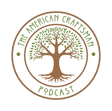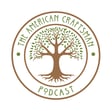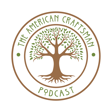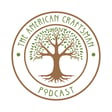
The American Craftsman Podcast Ep. 3 | Is The Festool Domino Cheating?
On Episode 3 of The American Craftsman Podcast hosted by Greene Street Joinery we discuss the topic of hand tools vs power tools and if the Festool Domino is cheating.
Beer of the Week (Labatt Blue): https://www.labattusa.com/beer/labatt-blue/
Tool of the Week (Pentel Graphlet): https://www.amazon.com/Pentel-Graphlet-Mechanical-Pencil-PG505-AD/dp/B0017OP2E2?th=1
Greene Street Joinery is a custom design & build shop located in Monmouth County, New Jersey. We build multigenerational furniture with an eco-friendly and sustainable mindset.
Inspired and guided by the ideals of the Arts and Crafts movement, we believe in the use of traditional craftsmanship and simple, well-proportioned forms; sustainability and ethical practices; and importantly, taking pleasure in our work as craftsmen to create quality pieces of enduring value.
Follow us!
Instagram: https://www.instagram.com/greene_st_joinery Facebook: https://www.facebook.com/greenestreetjoinery
Support us on Patreon!
https://www.patreon.com/Greene_st_joinery
Visit Us at https://www.greenestreetjoinery.com/
And be sure to Subscribe to our channel for more!
Support this podcast at — https://redcircle.com/the-american-craftsman-podcast/donations
Advertising Inquiries: https://redcircle.com/brands



